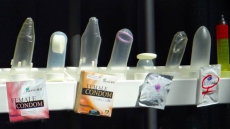Daily tomato consumption has been found to cut the development of skin cancer tumours by half in mice, scientists say.
Researchers at Ohio State University in the US found that male mice fed a diet of 10 per cent tomato powder daily for 35 weeks, then exposed to ultraviolet light, experienced, on average, a 50 per cent decrease in skin cancer tumours compared to mice that ate no dehydrated tomato.
The relationship between tomatoes and cancer is that dietary carotenoids, the pigmenting compounds that give tomatoes their colour, may protect skin against ultraviolet (UV) light damage, said Jessica Cooperstone, co-author of the study published in the journal Scientific Reports.
There was no significant difference in tumour number for the female mice in the study, researchers said.

Previous research has shown that male mice develop tumours earlier after UV exposure and that their tumours are more numerous, larger and more aggressive.
"This study showed us that we do need to consider sex when exploring different preventive strategies," said Tatiana Oberyszyn, a professor at Ohio State.
"What works in men may not always work equally well in women and vice versa," said Oberyszyn.
Previous human clinical trials suggest that eating tomato paste over time can dampen sunburns, perhaps thanks to carotenoids from the plants that are deposited in the skin of humans after eating, and may be able to protect against UV light damage, Cooperstone said.
"Lycopene, the primary carotenoid in tomatoes, has been shown to be the most effective antioxidant of these pigments," she said.
"However, when comparing lycopene administered from a whole food (tomato) or a synthesised supplement, tomatoes appear more effective in preventing redness after UV exposure, suggesting other compounds in tomatoes may also be at play," said Cooperstone.
In the new study, the researchers found that only male mice fed dehydrated red tomatoes had reductions in tumour growth.
Those fed diets with tangerine tomatoes, which have been shown to be higher in bioavailable lycopene in previous research, had fewer tumours than the control group, but the difference was not statistically significant.





